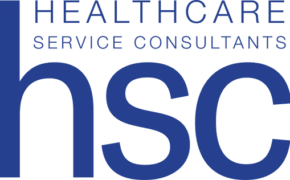
Here’s the scenario. Your healthcare IT company’s products have passed the pilot phase. You’re finally ready for broader commercialization. It’s an exciting time, to say the least.
It’s also a daunting time for CEOs. No matter how effective a healthcare IT solution is, nothing matters unless you can sell it. Going to market involves establishing a sales strategy that will deliver upon the revenue expectations of board members and investors.
The most obvious sales strategy is direct. This is where companies sell their products to end-user customers via their own sales force. Such a strategy is often the method pursued by young companies, as it offers the greatest control over sales cycles and revenue realization.
For some healthcare IT companies, a channel strategy may be worth considering. Channel strategies involve selling through trusted partners. This approach can increase access to different branches of a market and accelerate funnel development.
In this blog we’ll explore these two common sales models. We also discuss key considerations for establishing a successful sales strategy.
Benefits of Direct Sales Strategies
In a direct model, you contract or hire sales personnel to sell your products. In some cases, sales professionals with specialized knowledge go after different market segments based on practice type. For example, academic hospitals, VA hospitals, or group practices.
This model offers your organization full control over the sales process. It also maximizes the opportunity to align sales efforts with company goals. Such a model provides a direct line of communication between your prospects and the business to facilitate the ability to refine market understanding and continuous improvement in product positioning and messaging.
But, this model requires young organizations to build awareness and credibility across the market. Doing so can be a long endeavor. It often requires multiple salespeople to provide sufficient market coverage, which can be a non-starter for budget constrained start-ups.
Channel Partnerships Advantages
A channel strategy leverages partners with complementary products that are already selling into your preferred market segments.. These partners are often more established. This strategy provides ready access to your target market via teams of sales experts who understand the needs of your various target markets and buyer personas.
The channel model can be more cost effective from a salary perspective. Provided your channel partner is effective in selling your products, it can also reduce time to market speed revenue growth. Yet, oftentimes you will relinquish control over the sales cycle to your partners, which can impact revenue growth and affect margins.
If your product will be “white labeled” (re-branded) by your channel partner, you may experience decreased transparency into sales processes. Or, a lack of access to (or filtered) customer feedback. It can also mask the value your products and company provide. It may also limit the ability to create market awareness.
Sales objectives and incentives can also become mis-aligned. Salespeople often tend to sell the products that are easiest to sell, or which result in the greatest financial reward. Adding confusion or complexity to the sales process can be a disincentive to partner salespeople. They will opt to sell what they’re most familiar with—rather than risking losing the sale or extending the sales cycle.
Choosing a Sales Strategy Right For You
The nature of the healthcare IT market is highly fragmented. It’s critically important to develop a well-thought-out sales strategy in your go-to-market plan. This is when and how you determine the most efficient and effective way to access your target buyer personas. Doing so involves identifying who your buyer personas are. It also requires you to determine their buying patterns and preferences as well as the buying process so you can align your sales approach.
If you decide to go direct, determine a structure that supports the buying patterns of your target market personas. This requires the development of a sales force with skills, relationships, and clinical expertise that align with your target market segments. For instance, a sales force skilled in radiology won’t succeed in selling to pulmonology. Leveraging the existing connections and networks of your salespeople is also critical for success. Make sure these connections align with your target audience (e.g. large academic centers vs. smaller independent clinics).
Deciding on a channel strategy? There are a few ways you can set yourself and your channel partner up for success right from the beginning.
- Create value that exceeds the sum of its parts. The combined solution should provide value that exceeds the sum of each individual product. This creates a compelling offering for customers that makes it easier for channel partners to promote and sell your products alongside their own.
- Align business models and objectives. Not only is product alignment important, so too is alignment between your business model and sales objectives. When you and your channel partners are working towards common goals, it motivates sales teams and incentivizes them to sell the combined solution. This results in sales processes becoming smoother and more collaborative.
- Proactively manage the channel partnership. Partnerships don’t manage themselves. Channel managers are necessary to manage channel partner relationships, coordinate sales training and enablement activities, and lay out proactive strategies for managing channel conflict. Be intentional about building and maintaining strong relationships with your channel partners. This will lead to stronger, healthier, and mutually beneficial relationships.
Crafting a Successful Go-to-Market Sales Strategy
The decision on whether to develop a direct sales force vs. a channel partnership should be made as part of the go-to-market strategy. It must align with your organization’s internal resources and capabilities, as well as the buying patterns and preferences of your target markets.
Are you ready to define your sales strategy? Our healthcare IT product marketing experts have experience with both direct and channel partnership strategies. We can help you develop the model that will work best for your business and products. Contact us to learn more.




